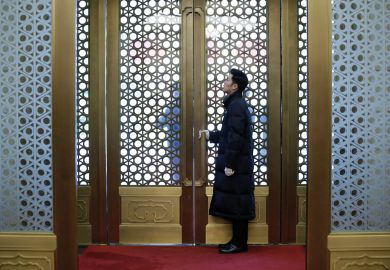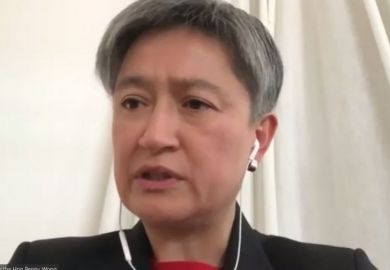Australians are becoming more sceptical about the benefits of education and research ties with China but also less worried about the potential risks, research suggests.
A survey of more than 2,000 Australian adults has found that compared with four years ago, fewer believe that Chinese students deliver economic or interpersonal benefits Down Under.
Just 53 per cent of respondents said students from China strengthened people-to-people links, down from 58 per cent in 2021. The proportion who believed Chinese students delivered an economic stimulus fell by 8 percentage points, while still remaining high at 68 per cent.
Fifty-four per cent credited Australia’s prosperity partly to its close economic engagement with China, down from 63 per cent in 2021.
But respondents were also generally less worried that the sheer volume of Chinese enrolments could be impairing course quality, denying university places to Australians, compromising academic freedom or rendering universities too financially dependent on Beijing.
The findings come from the fourth annual survey of Australian views about the relationship with China. Researchers at the University of Technology Sydney’s China Relations Institute and Centre for Business Intelligence and Data Analytics received 2,015 completed responses to their questionnaire – a larger sample than many political polls.
Compared with its first outing in 2021, this year’s survey drew substantially higher shares of “neutral” answers to many questions, suggesting that the Australian public’s preoccupation with China is on the decline.
“There has…been a steady decrease over the last four years in agreement with the notion that Australia’s prosperity is closely linked with economic engagement with China,” the report says. “Australians…are still content to reap the benefits of the economic relationship and cultivate business ties – though even faith in these dimensions is diminishing.”
The results suggest that Australia’s crackdown on international students, including many Chinese, could find favour with voters. The survey found that Australians wanted their government to adopt a “tougher stance” with Beijing, after initially welcoming Labor’s less confrontational approach than that of its Liberal-National predecessors.
Chinese officials may take a dim view of Australia’s student visa changes. There has been speculation that international education policy will be on the agenda when Chinese premier Li Qiang meets Australian prime minister Anthony Albanese during visits to Canberra and Perth over the coming week.
However, Australian education minister Jason Clare told Sky News that he did not expect the issue to be raised. Mr Clare said Chinese enrolments in Australia were still below pre-pandemic levels.
This year’s survey revealed increasing scepticism over research ties with China, although most respondents saw benefits.
The proportion of respondents who said Australian academics should continue to collaborate with their Chinese counterparts slipped 7 percentage points to 54 per cent, while the share who were undecided on this issue rose almost 10 percentage points to 34 per cent.
Report authors Elena Collinson and Paul Burke said the survey findings showed “just how deep Australians’ mistrust of China continues to be”.
This “national anxiety” is unsurprising, they said. “The memory of China’s economic coercion and wolf warrior diplomacy can hardly be expected to evaporate, even as Beijing’s punitive tariffs on Australian exports are gradually released and dialogue is resumed at the leadership level.”
However, the survey also uncovered growing scepticism that China had more influence than the US on Australia’s “regional neighbourhood”.
Register to continue
Why register?
- Registration is free and only takes a moment
- Once registered, you can read 3 articles a month
- Sign up for our newsletter
Subscribe
Or subscribe for unlimited access to:
- Unlimited access to news, views, insights & reviews
- Digital editions
- Digital access to THE’s university and college rankings analysis
Already registered or a current subscriber? Login








